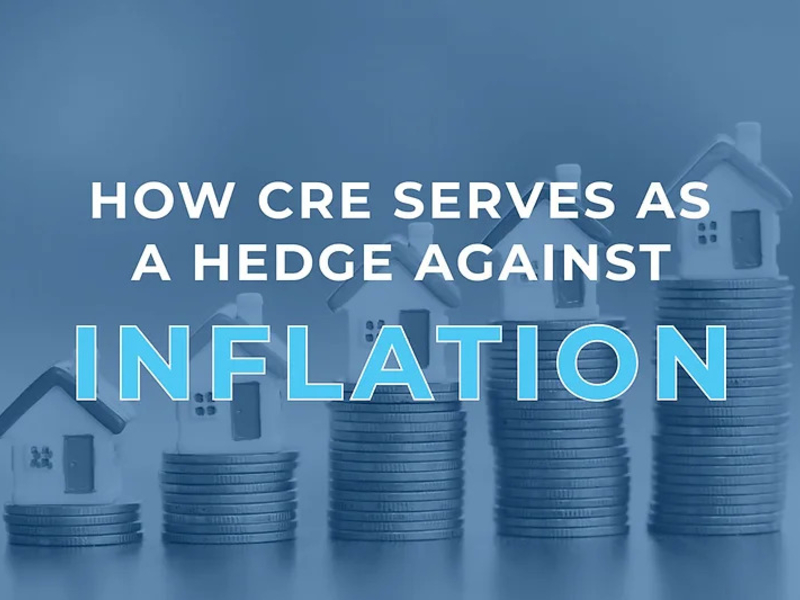How CRE serves as a hedge against Inflation?
Everyone is talking about inflation these days which is at a nearly 40-year high. If your income doesn’t keep pace with the rising prices, it can be frightening to know that the products and services you buy are going to cost more. Real Estate is emerging as a hedge against this roaring inflation given that it usually has little correlation with stocks and bonds. Real estate is an asset whose value historically increases faster than the rate of inflation.
- Real Estate is a good hedge against inflation because it tends to keep pace with other surrounding costs that are on the rise. Following are the various factors that make real estate a reliable hedge against inflation -
- Low, fixed interest rate- Although home prices are high, interest rates remain relatively low. If one happens to enter a fixed-rate mortgage now, it will ensure the expected monthly payments aren’t impacted by any future interest rate spikes. Also, as home prices rise over time, it lowers the loan-to-value of any mortgage debt.
- Increased Property Values- Property values can be relied upon to steadily increase over time. Since 1990, the median sales price of houses sold in the US has increased by over 350%. This consistent growth makes real estate a reliable way to create wealth.
- CPI Indexation- It encompasses contractually tethering rent increases to upward movements in the CPI. Many long-term commercial real estate leases contain a clause to periodically adjust lease payments in accordance with some agreed-upon measures of inflation.
- Rental Property Market- With inflation on the rise, interest rates, as well as property values, increase which may make buying a house burdensome on people’s budgets and they may consider rentals instead, which leads to a boom in the rental property market.
- Inflation-adjusted rent- Inflation also benefits real estate investors who are earning from their rental properties specifically with short-term lease structures like multi-family properties, because higher home prices often equate to higher rent. If the investor is able to adjust his rent upwards while keeping the mortgage the same, it can create an opportunity for increased income.
- Time Value of Money- In an inflationary environment, cash often tends to decrease in value as the number of products and services that can be bought with that money decreases too. On the other hand, if the same money is instead invested into real estate which increases in value and beats inflation, it would lead to an appreciation in wealth. Hence, it is better to put cash into the property than have it sit idle.
All in all, having real estate in your portfolio will be a sound decision given the inflationary challenges when compared to traditional investments. It is an opportune time to consider adding real estate to your portfolio as a hedge against inflation.
Trending
Contact




